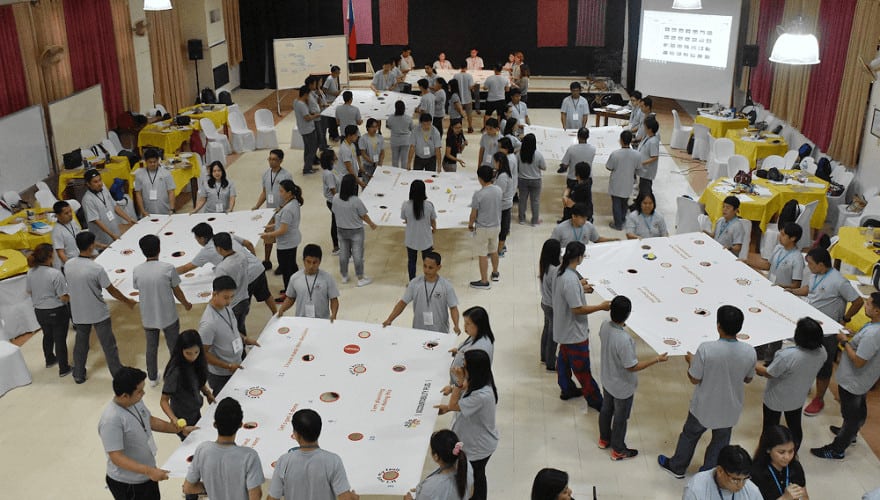I’ve stayed in some of the best resorts in the Philippines. The guest bathrooms were spotless — gleaming tiles, fresh flowers, everything perfect. But when I asked to see the staff bathrooms, I found the opposite: neglected, cramped, and uncomfortable.
That moment stayed with me. It made me ask: why do we give our very best to guests, but not to ourselves?
I’ve seen the same pattern in Filipino homes. When visitors come, the house is scrubbed clean, the best plates and glasses are brought out, and everything looks new. But on ordinary days, the clutter piles up. In schools, too — classrooms are suddenly polished when supervisors arrive, but left dull and neglected for the students who spend every day there.
This is the shadow side of our famous hospitality. Too often, it is a performance for others, not a practice for ourselves.
If hospitality is truly about making people feel they belong, then shouldn’t we start with us? Shouldn’t we be our own first guests?
The Colonial Shadow of Hospitality
This tendency to polish everything for outsiders while neglecting ourselves isn’t accidental. It has deep roots in our history.
For centuries, Filipinos were conditioned to serve foreign masters — Spaniards, Americans, and later, anyone seen as “superior” or “important.” Hospitality became a survival strategy. If you made outsiders feel comfortable, you avoided punishment, earned favor, or gained advantage. Over time, this habit stuck.
We see it today in many forms. Schools rush to clean up when district supervisors are scheduled to visit. Suddenly, posters are fixed, floors are waxed, and everything looks new. But once the inspection is over, the energy fades, and the everyday reality returns.
Even in trade, the mindset is clear: the best fruits, handicrafts, and products are exported abroad. What stays in the country is often what didn’t meet export standards. In effect, outsiders get the “premium,” while Filipinos settle for the “rejects.”
This is the colonial shadow of our hospitality — a performance designed to impress others, even if it means denying ourselves the same dignity. It’s hospitality as service, not as self-respect.
But if we want to reclaim the heart of Filipino hospitality, we need to break this cycle. Hospitality should not begin with impressing outsiders. It should begin with honoring ourselves.

Rethinking the True Meaning of Hospitality
Hospitality is not about performance. It’s not about showing outsiders a version of ourselves that looks better than our reality. At its core, hospitality is about respect — creating spaces where people feel valued, safe, and at home.
And that respect must begin with us.
I often say: we should be our own first guests. What does that mean? It means living in clean, beautiful spaces not only when visitors come, but every single day. It means eating from our best plates, not saving them only for special occasions. It means designing schools where classrooms are bright and inspiring for the students — not just polished when inspectors arrive.
The real test of hospitality is not how well we treat visitors. It’s how well we treat ourselves, our families, our students, and our employees in the ordinary days when no one is watching.
When we start practicing hospitality inwardly — for ourselves first — what we share with the world is no longer a show. It becomes authentic overflow. Guests experience the warmth that we already live in. And that is the kind of hospitality that creates dignity, not just impressions.
Everyday Examples of Misplaced Hospitality
You don’t have to look far to see how we often reserve our best for others while settling for less ourselves. The pattern shows up everywhere.
In our homes. The “good plates” and “nice glasses” stay locked away, waiting for visitors. Families eat from cracked mugs and old utensils every day, while the best things gather dust in cabinets. The message is clear: we deserve less than our guests.
In our schools. Classrooms transform overnight when regional supervisors announce a visit. Bulletin boards are refreshed, gardens are cleaned, walls are repainted. But for the students — the very people schools exist to serve — the environment is often left dull and uninspiring for most of the year.
In our resorts. Guests are given spotless bathrooms, luxurious spaces, and five-star treatment. Meanwhile, the staff who deliver that experience work in cramped quarters, with facilities that are barely maintained. If hospitality is about care, then shouldn’t employees feel it first?
Even in trade. The best mangoes, pineapples, and handicrafts are carefully selected for export. What’s left behind are the “rejects” sold locally. It’s as if Filipinos are told: the world deserves your best, but you do not.
Each of these examples points to the same mindset: hospitality as performance for outsiders, not as dignity for ourselves. And if we don’t address this, we risk making hospitality hollow — impressive on the surface, empty underneath.
A Call for Self-Respect and Shared Dignity
Why do we believe others deserve the best while we learn to settle for less? This is the question we must confront if Filipino hospitality is to grow deeper and more authentic.
Hospitality should begin not with outsiders, but with us. We should be our own first guests. That means making our homes places of beauty and comfort because we live there, not because someone might visit. It means letting children use the best plates, sleep in the best rooms, and enjoy the spaces we often “save” for others. It means schools keeping classrooms clean and inspiring every day, not just for inspections. It means companies ensuring employee facilities are just as cared for as guest spaces.
Hospitality rooted in self-respect transforms everything. When we care for ourselves with dignity, what we extend to others is not a performance. It is authenticity. Guests do not encounter a polished facade; they encounter the overflow of a culture that already values itself.
This is the shift we need. From hospitality as service to outsiders, to hospitality as a daily practice of respect — for ourselves, for our people, and for those we welcome into our spaces.
Implications for Organizations
The way organizations treat their own people is the truest test of their values. Customers can feel when employees are cared for — and they can sense when they are not.
Too often, I’ve seen companies invest heavily in world-class customer lounges while leaving employee break rooms cramped and outdated. Guests dine on gourmet meals, while staff eat in poorly lit cafeterias with little thought given to comfort. On the surface, the brand projects luxury and excellence. But underneath, the employees who make that experience possible feel neglected.
This is not sustainable. You cannot deliver authentic hospitality to customers if your own people do not experience it first.
True service leadership means extending hospitality inward before projecting it outward. That means designing employee spaces with the same attention given to guest areas. It means providing staff with the same dignity, respect, and comfort you want them to extend to customers.
When employees feel they belong, when they are treated as the first guests of the organization, they naturally share that warmth with the people they serve. Hospitality becomes effortless, not forced.
For HR leaders, business owners, and managers, the principle is simple: if you want customers to feel cared for, make sure your employees feel cared for first.
Teacher’s Corner: Teaching Hospitality for Ourselves
In schools, hospitality is often practiced when visitors arrive. But the deeper lesson is to teach students that they themselves deserve the same care and dignity every day. Here are some ways teachers can bring this shift into the classroom:
1. “Be Your Own Guest” Reflection
Ask students: “If you were your own guest, how would you treat yourself?” Have them write or share practical ways they can apply this at home, in school, or even in how they take care of their own belongings.
2. Everyday Care Projects
Instead of cleaning classrooms only for inspections, encourage students to design “everyday care” routines. This could be as simple as a rotating group that beautifies a classroom corner daily — so the space is always welcoming, not just when outsiders visit.
3. Hospitality for Classmates
Challenge students to notice classmates who may feel left out and practice small acts of welcome: sharing food, inviting them to games, or including them in group work. This reinforces that hospitality is not performance but daily kindness.
4. Celebration of the Everyday
Encourage using the “best” things — whether it’s art materials, school supplies, or even classroom displays — for the students themselves, not saved only for special events. This teaches them that they are worthy of beauty and excellence now.
For teachers, the key is to move students beyond seeing hospitality as something we do for visitors. It is something we live every day — for ourselves, our classmates, and our community.
Closing Reflection
Filipino hospitality is one of our greatest strengths, but it loses its power when it is only performed for outsiders. If it is to remain authentic, it must begin with us.
We should stop saving the best for guests and start living with the best ourselves. Our homes, our schools, our workplaces should be places of care, comfort, and dignity — not because someone important is coming, but because we are important too.
When we treat ourselves as our own first guests, everything changes. Hospitality is no longer a mask we put on for visitors. It becomes a way of life we already enjoy — and one that naturally overflows to everyone we welcome.
That is the deeper call of Filipino hospitality: not performance, but presence. Not just service, but self-respect. And when we begin with ourselves, we give the world not just a show, but our true and generous heart.
If you want Filipino values to show up as real behavior at work…
Let’s turn it into a culture shift experience.
→ Shift Experiences










